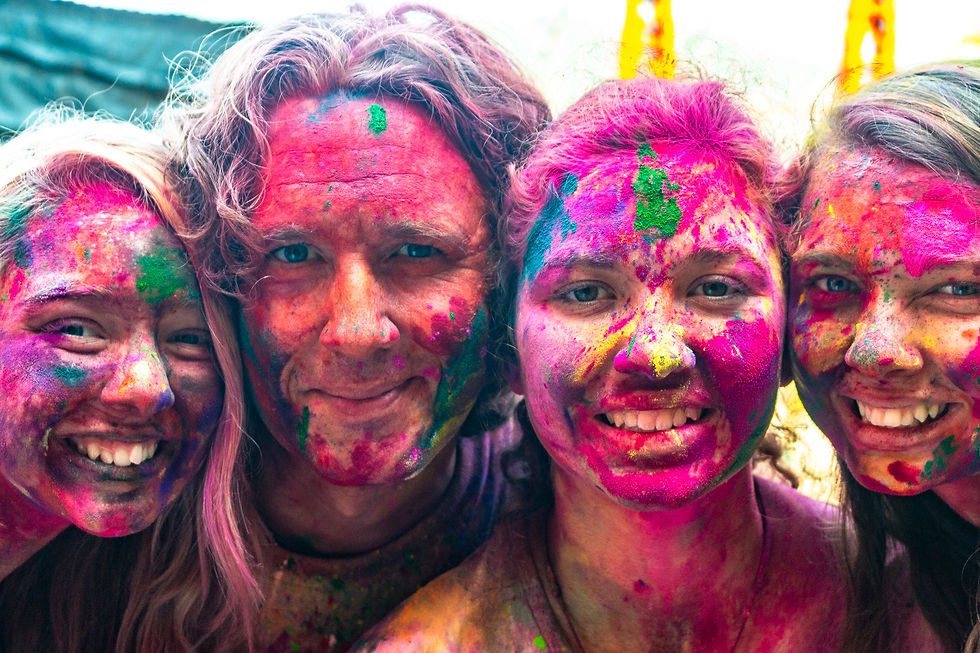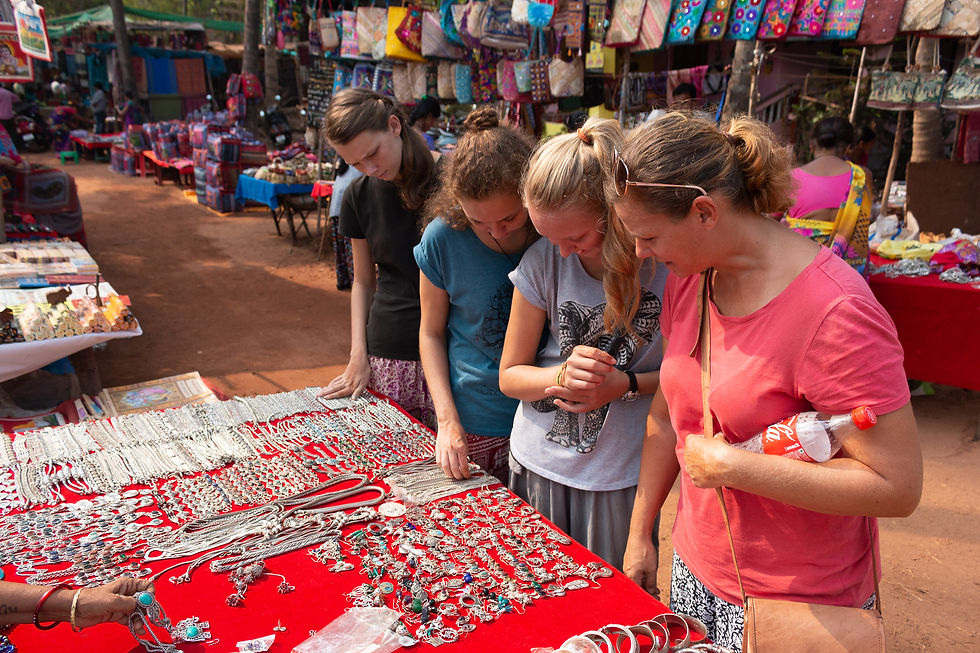10 Tips for Traveling with Teenagers
- Rand Blimes

- Apr 28, 2025
- 5 min read
Updated: Apr 28, 2025

My wife and I took our first daughter on her inaugural backpacking journey when she was about two months old (it wasn't fun). By the time she was two years old, we had hauled her all over Western Europe (more fun, but a lot of work). Before long, we had two more daughters whom we road-tripped with all over the U.S. (some fun—more work). When the kids were 14, 12, and 10 we took them to Southeast Asia (so much fun!). And about three years after their first trip to Asia, we spent 13 months traveling around the world with them (with a focus on Asia).
Would you do it? More than a year of traveling with three teenage girls? For me, I can't imagine anything I would rather do. It was amazing. If nothing else, I spent more time with my daughters during that one year than most parents get to spend with their kids in a lifetime.
And here is the kicker: during almost fourteen months of travel, under stressful conditions, often living in cramped quarters, my three daughters did not have one real fight with each other (they got huffy a time or two, and they definitely wanted alone-time when they could get it, but no actual fights).

I am fortunate. My kids are fantastic travelers, and no doubt much of that is luck of the draw. I just happened to get kids that are good travelers. But my wife and I can probably take some credit. Today we have three adult daughters who love to travel, and they are pretty darn good at it. Here are ten tips for traveling with teenagers, things my wife and I did to make traveling with our kids go (mostly) smoothly.
1. Travel with them when they are young
It is a lot of work. In fact, traveling with young kids has a work-to-fun ratio that is definitely pointed towards hustling and sweating. We put up with an awful lot of crying from the back seat for years on road trips, but the kids learned to deal with the rigors of travel. Now, when I tell my daughters that we have a two-day boat ride from the Thai border to Luang Prabang, they look forward to it.
2. Don't expect them to have a good attitude the whole time
Kids are moody. Heck, adults are moody. Adults just know that only a terrible travel companion lets their frustration show all the time. But even for adults, trying to smile and act like we are having fun when we are feeling rotten inside can get tiresome. So much more so for the raging, unstable bundles of hormones that we call "teenagers."
We tell our kids they get one grumpy day per trip, (on long trips you can just pick some time period and give them one grumpy day per week, or month, or whatever). On the grumpy day, the kid can just declare she is using her grumpy day, and we let her march around in a foul mood behind us. We don't insist on pleasant conversation. We don't insist on smiles. We don't insist she pretend she is enjoying herself. We don't allow tantrums, but we don't require active participation in whatever we are doing. No judgement. We just try to stay out of the grump's way. Doing this, we find the bad mood rarely lasts very long. Apparently, it is the act of making a grumpy kid act pleasant that really ticks them off. (Note: you just get to do this on your grumpy day. Other days, you have to act like a civilized human being even if you aren't feeling like one—but knowing they have the grumpy day tends to make this much easier to pull off).
3. You have to compromise
Remember that compromise is a two-way street. Sometimes the kids need to get their way. If this means you end up spending the day you planned for a museum lying in a hammock on the beach instead, just remember: there are many worse problems to have than living your life according to the whims of a teenager once in a while.

4. Have a sense of humor
You have to be able to laugh at yourself, laugh at a bad situation, laugh at a non-life-threatening mistake. Our family motto is, "Family means being teased by the people who love you the most." Teach your kids to laugh at themselves—and teach them to be comfortable letting people who care about them laugh at them as well. Travel goes wrong from time to time. It is part of the game. Being able to laugh at mistakes is a wonderful life skill, and you will get to practice it a bunch when you travel.
5. Ice cream cures all ills
Lots and lots of ice cream. Cake is good too. So is pie. Or whatever the delicious local dessert is. This works on all age groups.
6. Take a siesta
Exploring new places is a lot of work. We are often exploring places that are hot and humid. Being on the go all day long in Bangkok in the middle of summer can be overwhelming. Get up in the morning, explore until lunchtime, then go back to the hotel and rest. It may seem like a waste to spend precious vacation hours in the hotel room, but in our experience, the quality of the remaining hours will more than make up for it.

7. Plan travel breaks
Foreign travel can be tough to do 24/7 for a long period. A brief dalliance with something familiar from home can help keep up the enthusiasm for all the new and different experiences. For example, my kids are great with food. Traveling through Southeast Asia, they ate whatever we put in front of them: jelly fish, pigeon, ostrich, cobra, tarantula, dog. But after we had been out for a while, we took a break. We visited a Pizza Hut in Saigon. Once that is out of your system, everyone turns happily to the bowl of snail soup.
And as a bonus travel tip: McDonald’s generally has AC and free bathrooms.
8. Let teens be active participants in the travel
Don't just bring the kids along for a ride. Give them the money at the market and have them interact with the vendors to procure lunch. Show them how to navigate the public transit system. Have them look up visa requirements. Teach them how to be smart about what to do and what not to do.
9. Give them some space
You are not only teaching them how to travel but also how to be competent, independent humans. So (within reason) let them have some time on their own.
10. Just do it
The most important thing about traveling with teens (or kids of any age—or yourself) is that you do it.
And if anyone asks you why you would want to do such a thing, just tell them, "because travel best as a family!"




Comments